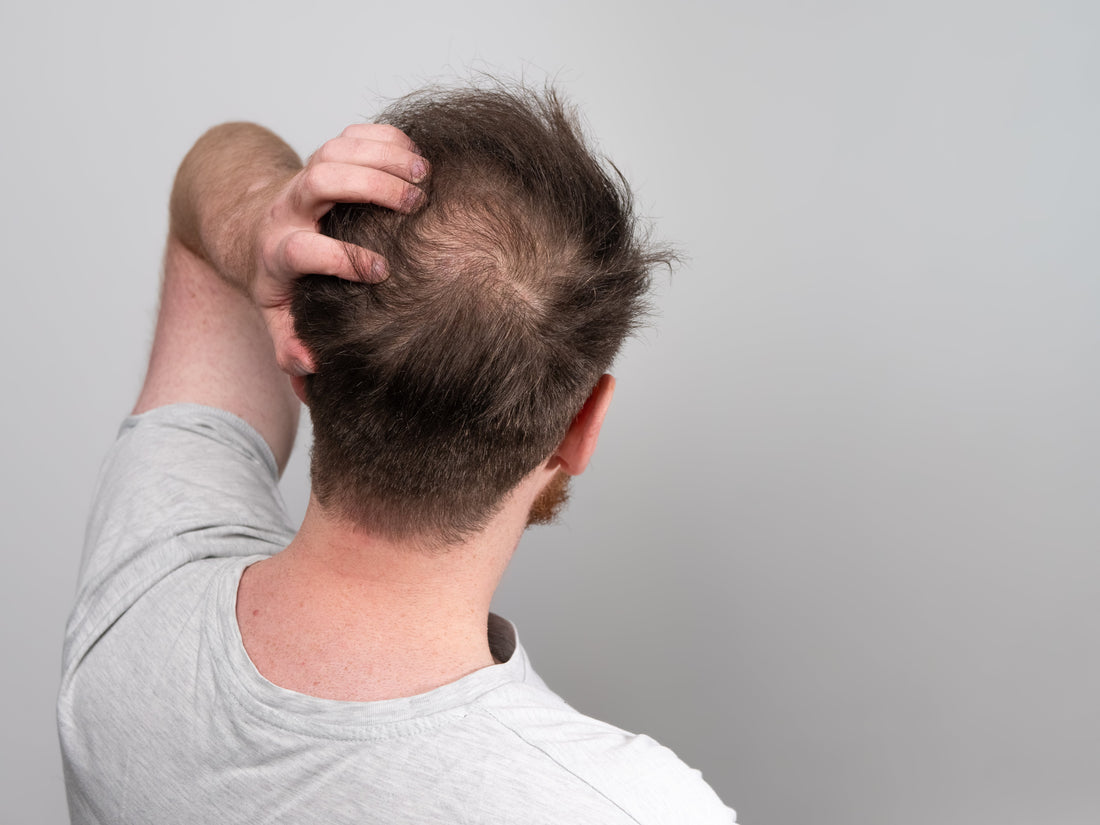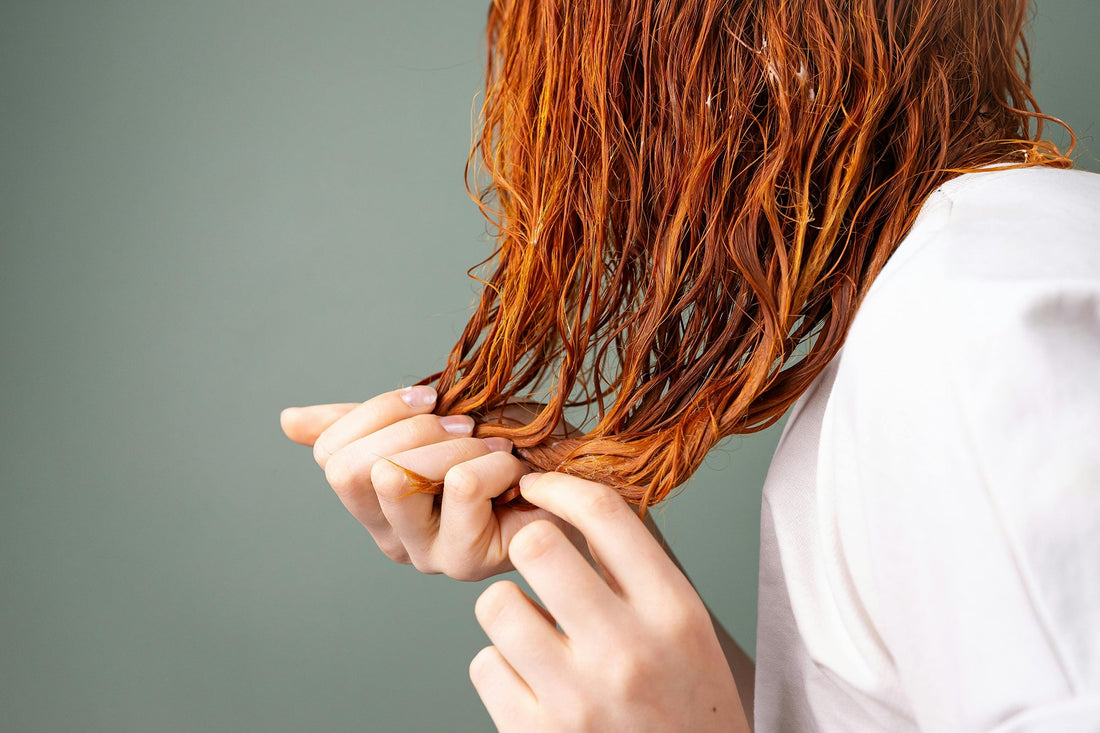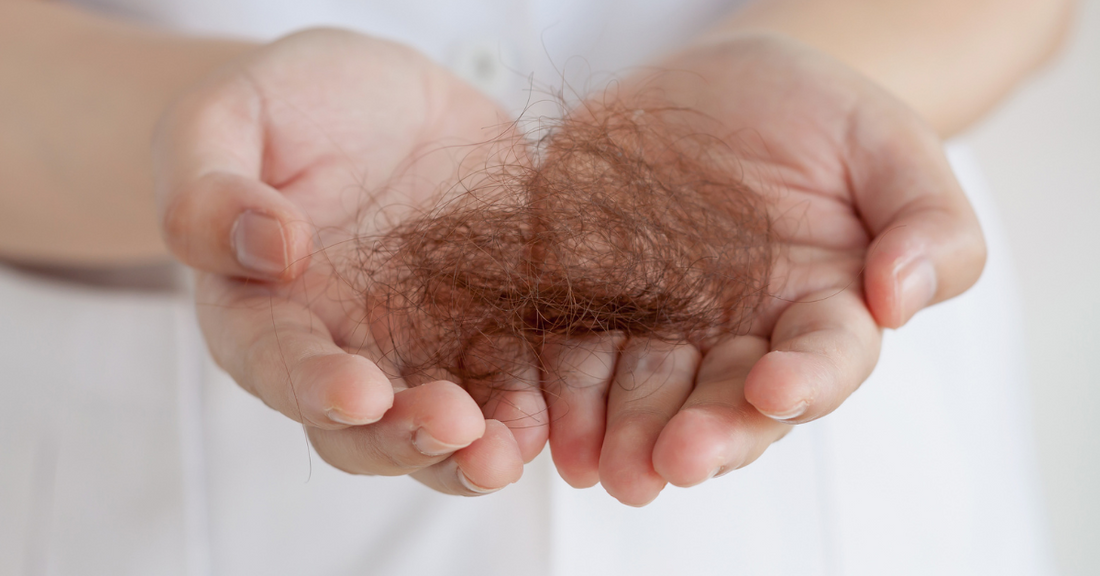If you are experiencing hair loss and wounded confidence, you are not alone. In fact, many men and women are facing the same degree of frustration and embarrassment. To be more precise, hundreds of millions of others are in the same spot that you are. The great news is, they do not have to simply accept hair loss or thinning, and neither do you.
Genetics may account for approximately ninety-five percent of hair loss or thinning. However, there are rare cases where other factors may be involved. No matter what the cause seems to be, it is best to consult a physician if you are experiencing excessive hair loss or thinning.
We have compiled below some other reasons hair loss or thinning occurs. Just like male and female pattern hair loss, with timely intervention these issues can be addressed and resolved, allowing you to recoup the hair you have lost and regain your peace of mind.
Understanding the Hair Cycle
Hair is a process that occurs in three stages. The first stage is anagen (the active growing stage), the second is catagen (the resting stage), and the third is telogen (when new hairs push old ones out). In the telogen stage, hair can usually be found in your hairbrush or in the shower.
It is quite common to lose approximately one hundred hairs per day. But if you start to lose more, especially by the handful, this can cause intense anxiety. What happens if your hair loss does not follow the normal pattern? This is when it becomes necessary to look into other causes.
Beyond Genetics, What Causes Hair Loss?
While genetics is most often the frequent culprit to blame for your hair loss or thinning, there are other factors that can be involved. Understanding these factors and consulting a physician are necessary steps to stopping hair loss or thinning.
Beyond genetics, hair loss can sometimes be traced back to lifestyle, nutrition, disease, hormonal shifts, or emotional stress. In many cases, it may be a combination of these factors that is impacting your hair cycle. To make sure there is not something more serious going on, hair loss or thinning should definitely be discussed with a healthcare professional.
Illness and Disease Can Cause Hair Loss
Beyond genetics, illness and disease is certainly something that can impact hair loss. For example, certain medical conditions can cause hair loss or thinning, as well as certain treatments and medications. Be sure to let your physician know any health problems you may have, as well as all supplements and prescriptions you may be taking for them.
If you have had surgery or treatment for a major illness, keep in mind that hair loss is not rare under these circumstances. For example, many individuals may experience hair loss approximately three to four months after a major surgery, treatment, or illness. While this is certainly frustrating, it often remedies itself through time, so take heart. Stress from these types of major life events can definitely disrupt the normal hair cycle.
If you have not had a major health event, getting checked out with a physician is a great idea just to rule out any more serious causes. For example, autoimmune conditions like Lupus, cardiovascular problems, and diabetes are a few medical conditions that can impact hair loss. Even skin conditions like lichen planus or seborrheic dermatitis can cause your hair to thin.
While it is highly encouraged to see a health professional to air on the side of caution, there are many more conditions that can cause hair loss or thinning, so there is no need to panic just yet.
Hormonal Fluctuations
Hormonal fluctuations can have a definite impact on hair loss or thinning. If your hormones are a bit off, this could be one of the reasons you are experiencing a disruption of the normal hair cycle. For example, overactive or underactive thyroids, and even thyroid disease, can be the culprit behind the loss of hair.
The good news is that this can be a relatively easy problem to solve. There are many treatments that can help your hormones be a bit more stable, and thyroid treatments can certainly help slow or stop hair loss. After this is remedied, there are many solutions that can speed up the hair cycle so that your hair is restored as soon as possible.
Simply Getting Older
Although this is not an easy one, getting older represents a remarkable transition from one stage of life to another, and this can include hair loss. Statistics show that forty percent of all men have considerable hair loss by the age of thirty-five. This number jumps to sixty-five percent by the age of sixty. Aging is necessary for androgenetic alopecia to occur, however, aging itself can diminish hormone production and hamper the of new hair.
Poor Hair Care
If you think about it, we do a lot to our hair. We may dye it, bleach it, or have certain hairstyles. Chemicals involved in any hair-alteration endeavor may end up damaging hair follicles. Poor treatment can cause hairs to break off or fall out.
Even excessive hair styling can cause damage in the long run. For example, too many salon trips can cause a devastating effect as you get older. The good news is that as long as these behaviors are changed before the scalp begins to scar, the hair should not have any problem growing back. If scarring does occur, it may lead to permanent hair loss in that area.
Poor Nutrition
Nutrition plays an important role in keeping your hair and scalp healthy. Sometimes hair loss may be as simple as not getting enough iron or protein in your diet.
A healthy and balanced diet is critical for many reasons, but also plays a role in the health of your hair and maintaining a normal hair cycle. Unexpected hair loss can be a clue that something is missing from your diet. For example, vitamins, proteins, minerals, and fats all play a significant role in hair and contribute to different stages of hair.
If you are looking to have healthier hair, try incorporating protein, B vitamins (especially B-12 and B-7, also called biotin), vitamin C, iron, vitamin A, and zinc into your diet. Certain foods, such as oysters, fish, spinach, pumpkin seeds, tofu, quinoa, beans, walnuts, eggs, yogurt, and lentils can help support and contribute to hair.
Malnutrition can be one of the biggest factors in unexpected hair loss. This is where it becomes important to critically evaluate any fad or crash diet plans. If you are wanting to lose a lot of weight over a short period of time, or if your diet involves eliminating most of the things you can eat, malnutrition can easily occur. Symptoms of malnutrition can include dizziness, anxiety, and hair loss.
Stress
This may or may not come as much of a surprise, but stress can attribute to hair loss or thinning. If there is anything we have too much of right now, it is stress in our lives. We live on the go, and many of us have demanding professional and personal lives. Stress can cause us to stress eat, or not eat at all. It can also cause headaches, exhaustion, nausea, and dramatic hair loss.
An acute traumatic event, such as the loss of a loved one, severe systemic illness, or even the joyous shock of childbirth can cause a mass exodus of hair from your head to fall out two to three months later. This situation is called telogen effluvium and results in hair coming out in clumps or handfuls. While this is a very unnerving condition, in most cases, telogen effluvium will resolve itself with time, attention, and efforts to support healthy hair.
Treating Hair Loss
No matter what is causing your hair loss, one of the most important things to realize is that you are not alone and there are solutions available. After visiting with a health professional and figuring out what is causing your hair loss or thinning, you can address it. Hair loss is usually not something you have to settle for. If your hair loss is bothering you, you can take action today.







